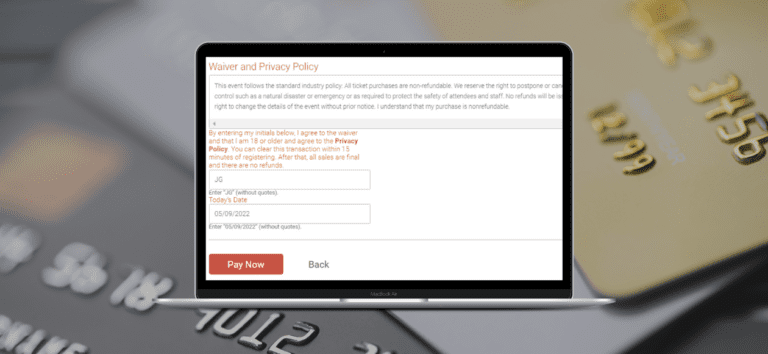That irritating move when people who purchased tickets to your events (willingly!) contest the charge with their credit card company and attempt to force you into a refund (and an additional fee from the credit card network for processing the chargeback). For an event director, chargebacks can be both demoralizing and financially challenging, with limited recourse. Here’s the good news: in the past few years, we’ve become experts at handling chargebacks – and we handle them for you, meaning you don’t need to waste your time agonizing about every one.
What do we mean when we say we’re experts in fighting chargebacks? In the last year alone, our finance team has managed more than 1,400 chargebacks for our customers. And while chargebacks are frustrating, it’s important to remember that they are a small percentage of attendees – last year, just 0.02% of all transactions resulted in a chargeback. And of that 0.02%, the majority were due to unrecognized charges or recent fraud on the account. Don’t focus on the tiny percentage of ticket purchasers who use chargebacks as a way to get a refund.
What You Can Do to Reduce the Likelihood of Chargebacks
One quick and easy step you can take to reduce chargebacks is to customize the statement description that purchasers see when tied to the charge. Many chargebacks are simple accidents because the purchaser doesn’t recognize the charge as it’s described – make sure yours is quickly identifiable as the event they signed up for.
You can customize this as you are initially setting up your event at the bottom of Step 3 of the Ticket Event Wizard. If you missed it during setup or just want to take a second look at what you picked, you can view and edit your statement description by navigating to Financial >> Payment Settings and clicking on the down arrow to open the page section.
When opened up, you will be able to edit the description.
How We Handle Your Chargebacks
When an attendee files a chargeback, the notification comes to us, not you. From there, we have a few steps that we take, depending on the circumstances of the chargeback and the policies of the event.
- Reach out to the attendee who instigated the chargeback with a record of their transaction. A surprising number of people simply forgot what they signed up for or didn’t recognize a donation or purchase. In these cases, they are generally quick to reverse the chargeback or re-pay the fee.
- Send an automated notification to the event director so you can reach out to the purchaser if appropriate, or you can let us know if you have already refunded the purchaser or you prefer to just accept the chargeback as a refund.
- If it makes sense to dispute the chargeback, we send refund policy documentation to the credit card company to demonstrate that the purchaser agreed to a no-refund policy.
All of this happens on the backend, with no action from you. But you can see what’s happening with your chargebacks by navigating to Financial >> Financial Summary and clicking on Adjustments.
When you click into Adjustments, you can see the status of any chargebacks for your event.
Steps to Help Fight Chargebacks
The best thing you can do to help us fight chargebacks isn’t to send proof that the person signed in at the event or was caught on camera attending. It’s simpler then that: have a clear and thorough refund policy that makes it clear that it doesn’t matter what the circumstances are: there are no refunds.
You can add a refund policy by navigating to Event >> Waiver/Refund Policy and selecting Add Waiver. Note: you can add multiple “waivers” here, so you can add both your standard attendee waiver and a refund policy and require participants to agree to both of them.
There are multiple options for requiring attendees to agree to the policy, from lightweight (a simple checkbox) to detailed (name & date).
Once you save your refund policy, all ticket purchasers will be required to agree to it based on the parameters above. The policy shows up on the checkout page:
We always recommend consulting your own lawyer for advice on the best language for refund policies, but the following policy is a good starting point for your discussions with a legal team.
This event follows the standard industry policy: All ticket purchases are non-refundable. We reserve the right to postpone or cancel the event due to circumstances beyond our control such as a natural disaster or emergency or as required to protect the safety of attendees and staff. No refunds will be issued under these circumstances. We reserve the right to change the details of the event without prior notice. I understand that my purchase is nonrefundable.
By completing this purchase, I acknowledge (or a parent or adult guardian for all children under 18 years) having read and agreed to the above release and waiver including the refund policy.
Takeaways
There’s no magic bullet that will allow you to avoid all chargebacks – no matter how flexible your policies and clear your communications, it’s always possible that a ticket purchaser will be confused or simply decide to challenge a charge without clear reason. But you can limit the impact of chargebacks on your event with three easy steps:
- Make your Statement Description clear.
- Add a clear and decisive refund policy that purchasers must agree to.
- Let us do the work for you!
